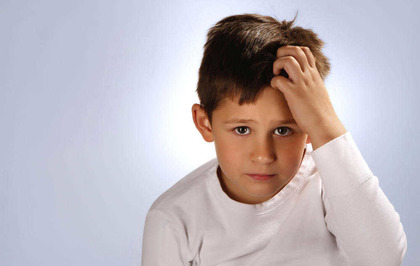
Eight-year-old Liam sat in the hallway again, arms crossed, eyes burning, lips sealed tight. Another “time-out,” another red mark against his name on the classroom behaviour chart. His teacher, exasperated, had labelled him as defiant. “He refuses to follow instructions. He’s disruptive, disrespectful, and rude.”
What they didn’t see was what was going on beneath the surface.
What they didn’t see was Liam’s heart pounding the moment he heard the word “test.”
What they didn’t see was his brain working overtime to stay calm when his seat partner grabbed his pencil again.
What they didn’t see was the fear underneath the fire, the deep sense of shame when he felt out of control, again.
The Inner World of a Child with ODD
Oppositional Defiant Disorder (ODD) is more than just “bad behaviour.” It’s a complex neurological and emotional experience often misunderstood by adults.
Children like Liam aren’t choosing to be difficult, they’re often overwhelmed, dysregulated, and unsure of how to manage what’s happening inside them. Their brains are wired to react quickly and intensely, especially in situations where they feel powerless, criticised, or unsafe.
Imagine walking into every day knowing that someone will ask you to do something that feels impossible, like sitting still, staying quiet, or trusting someone who doesn’t seem to like you very much. That’s what it’s like for many children with ODD.
Their pushback isn’t always about defiance. Sometimes, it’s the only way they know to express distress.
Misunderstood in the Schoolyard
In the school setting, children with ODD are often the ones punished the most but helped the least. Teachers may see disrespect, but miss the exhaustion behind the glare. They may see the refusal, but miss the fear. They may see the anger, but miss the hurt.
Liam’s repeated suspensions didn’t help him learn. In fact, they deepened his shame and confirmed what he had already started to believe: “I’m the bad kid.”
The more he felt misunderstood, the more explosive he became. It’s a heartbreaking cycle, one that leaves children isolated, labelled, and unsupported.
What Adults Can Do Differently?
The good news? Children like Liam don’t need to be “fixed” they need to be understood.
1. Listen to the defiance behaviour, not just correct it.
Ask: What is this child trying to tell me through their behaviour?
2. Create safe relationships.
Children with ODD thrive when they feel truly seen and emotionally safe. Consistency, empathy, and calm help build trust.
3. Learn about their brain.
Many kids with ODD have underlying challenges, trauma histories, sensory processing difficulties, ADHD or depression. Supporting the whole child leads to real change.
4. Partner with professionals.
Child psychologists trained in emotional regulation and behavioural interventions for defiance can work with both the child and their support system such as parents, carers, and schools to create lasting strategies that help, not harm.
Every Child is Worth Knowing
When we take the time to look deeper, we stop seeing the “naughty” kid and start seeing the struggling child who needs support.
Liam isn’t alone. There are many children like him bright, sensitive, hurting who are waiting for someone to really see them.
At Creating Change Psychology, we believe that every child deserves to feel understood, empowered, and safe. If you’re parenting or teaching a child with ODD, we’re here to help you make sense of the storm and find a path forward.
Let’s look beyond the behaviour and connect with the child inside.
Looking for support? Book a session with one of our experienced child psychologists today. Together, we can create change that lasts. Our warm and experienced team of psychologists is here to walk alongside you whether you’re navigating the daily struggles of ODD, emotional outbursts, or behavioural challenges. Reach out today, and let’s take that first step together toward calm, connection, and hope. Call us on 02 8883 3185 or email us below.
Written by Clinical Psychologist Rebecca Deane – www.creatingchange.net.au
Psychology support in the Hills District, Western Sydney & Surrounds (including Rouse Hill, Bella Vista, Glenwood, Castle Hill, Kellyville, The Hawkesbury, Penrith Nepean, Blacktown, Epping, Ryde, Pennant Hills areas and surrounds)

